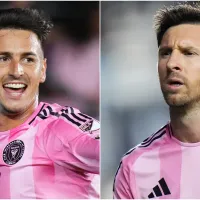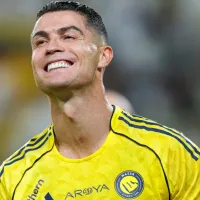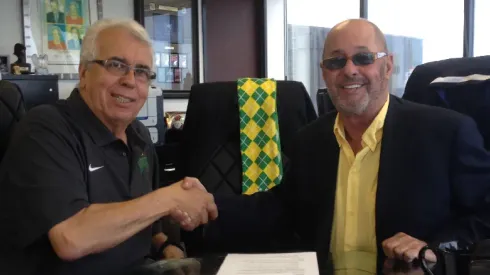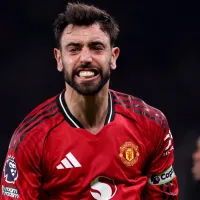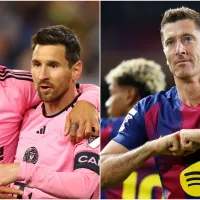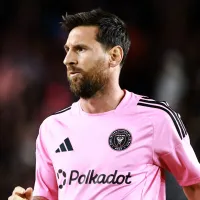
USL Founder Francisco Marcos was recently hired by the Tampa Bay Rowdies of NASL to lead the club’s international development effort. Marcos, who for over four decades has been one of the most influential people in the development of both the professional and elite youth game in the United States, began his professional life in the Tampa Bay area in 1974, preparing for the launch of the Rowdies the following year.
In the mid 1980’s, following the collapse of the NASL, Marcos started USL and served as the league’s president for two decades and also spent a dozen years on the US Soccer Federation’s Board of Governors.
Marcos’ contributions to the sport helped keep pro soccer alive in this country in the so-called “dark period” between the collapse of NASL and the 1994 World Cup. Marcos retired from USL in 2012 with the league encompassing much of the overall professional and amateur pyramid in the country.
Marcos’ hiring brings immediate credibility to the Rowdies efforts to leverage their brand, one of the most historically famous in US Soccer to audiences abroad.
World Soccer Talk sat down with Marcos this week to discuss his return to the Rowdies and the opportunities for the organization going forward.
WST: What compelled you to return to the Rowdies organization after all these years?
FM: A little over two years of retirement convinced me it wasn’t all it was cracked up to be. The fire is still burning, and the opportunity was still there thanks to people I have worked with through the years. The Rowdies, as an institution, are 45 years old and I go back to day one.
Lee Cohen and Perry Van der Beck are people I worked with and mentored. The ownership of Bill Edwards elevated the club. Farrukh Quraishi (who Marcos brought to the Rowdies organization in 1975) coming on board as the team’s President and the addition of Thomas Rongen also furthered the process. I worked with the team to set up a preseason tour to Portugal. At that point we got in-depth discussing things and it became a no-brainer to join the organization again.
WST: Tell us a little more about the mentorship aspect and the success of USL developing employees, fans and staff, particularly here in the Tampa Bay area?
FM: Farrukh Quraishi was my first college draftee with the Rowdies. I came across Farrukh when I was arranging tours of Europe. I came across him in suburban London, recruited him to come to the United States and four years later drafted him to the Rowdies. Besides being a player in those days, everyone had to wear two or three hats. Farrukh also became the Director of Youth Development for the Rowdies and worked under me. Three years later, I drafted Perry Van der Beck to the Rowdies, the first high school player ever to come into the NASL. Perry became a household name in Tampa, captained the US Olympic Team and the US Men’s National Team. Lee Cohen was with me for six years in the USL and learned a lot about the details that are involved in running teams and leagues. Lee ran the PDL essentially by himself and we had 70 or 80 teams at the time. Nic Murray, who is a Rowdies fan and covered the team for the Tampa Tribune, I hired to USL when the USL/NASL war was raging and he continues to support the Rowdies. Tim Holt this week was named Vice President of Development of Orlando City in MLS. His entire professional experience was in USL. He climbed the ladder at USL and eventually ran our pro leagues.
WST: The New York Cosmos are a household global name but throughout the existence of both the old and new NASL, the Tampa Bay Rowdies have been that “second” club. How do you plan on leveraging that globally?
FM: The Cosmos-Rowdies were THE rivalry in the old NASL. Franz Beckenbauer’s first ever game in the US was at Tampa Stadium, which the Rowdies won. The BBC did an hour-long special on the Rowdies around that time. If you go to Britain today, the Rowdies are as big as the Cosmos if not bigger with older fans. We had players like Rodney Marsh who were household names in the British Isles.
In 1978, we formed a partnership with Sao Paulo and we got players including Tatu from that partnership. We created a tournament with Brazilian, British and Florida team known as the Sunshine International Series sponsored by Pan Am and brought British teams like Ipswich Town, then managed by Bobby Robson, and Manchester City to Tampa and Fort Lauderdale.
We are going to work on our partnerships in Brazil and developing relationships to bring young players on loan maybe with an option to purchase from the bigger Brazilian clubs. Several big Brazilian clubs are aggressively looking at the US market so we’re looking at those possibilities.
In Portugal, they have lots of Eastern European, African and South American players. Those players have lots of success acclimating to Portuguese soccer and then jumping to other leagues. We can develop relationships there. I see from a technical perspective how the team can benefit, even sending some of our young players to clubs abroad to train during our offseason. When we did that with the (original) Rowdies, the players including Perry Van der Beck came back much better players. In developing these relationships, you are only limited by your imagination.
We can also help grow the awareness of the Tampa and St Petersburg/Clearwater areas in places like Brazil. The area isn’t as well-known as Fort Lauderdale or Miami but awareness is growing of the area. I can envision us creating a tournament in the future with the three NASL teams in Florida and international teams for a tournament like the Sunshine International Series.
WST: Have you found residual recognition for the Rowdies brand abroad?
FM: Yes, first off, the Fort Lauderdale Strikers of NASL have their games televised nationally in Brazil thanks to the Ronaldo connection including games with the Rowdies. The Rowdies, because of the original Sao Paulo relationship, is still known among older fans in Brazil and the recognition is growing again now with the Strikers rivalry.
We find residual recognition of the brand in the United Kingdom and among older fans who followed the NASL in Europe. Newer recognition is coming through having identifiable international players.
Our owner Bill Edwards is well-connected economically and politically. Look at what he did to transform Al Lang Stadium in just five months. His connections deepen recognition of the Rowdies abroad.
Photo courtesy of Tampa Bay Rowdies.


